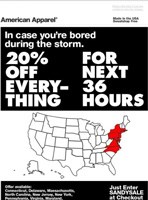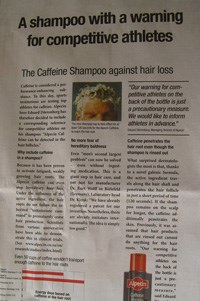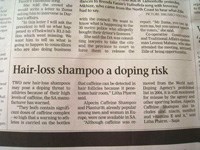American marketers have drawn criticism for "newsjacking" Hurricane Sandy. American Apparel offered a 20% discount for 36 hours "in case you are bored during the storm" and Sears advertised on Twitter "Did Hurricane Sandy affect your city? Get your generators, air mattresses & more in one place". There are several other examples in a similar vein.
The general response has not been good. Consumers feel these ads are insensitive, in poor taste and generally give marketers and advertisers a bad name.
I have to agree. Where people more than 8 million people are without electricity, some in freezing, snowbound weather, the New York Stock Exchange has been closed for two full days, creating havoc in an already fragile economy and at least 96 people have died, these attempts at marketing are just crass.
Rapid response
To be fair, Sears responded to criticism rapidly, updating their headline to Weather the Storm and offering 0% interest on generators and the American Apparel website now makes no mention of the storm sale.
But is "newsjacking" a legitimate marketing tool? I think so. In fact, the news might offer opportunities too good to ignore, and a well-thought out response to a topical news story might capture your target market's imagination and help to create awareness for your brand.
Last week, Alpecin Shampoo ran a launch ad in the Sunday papers with the headline "A shampoo with a warning for competitive athletes". Ostensibly a public service ad, this was a clear case of "newsjacking". While no mention was made of Lance Armstrong, his doping scandal is very much top of mind. And since caffeine hasn't been on the banned substances list since 2004, I'm not convinced that the authorities will be checking hair follicles for caffeine any time soon!
Clever, and possibly adding credibility as well
More interesting, however, is that someone in the South African Press Association picked up on Alpecin, and presumably oblivious to the advertorial nature of the announcement, reported it as news in the morning papers two days later.
Hats off to Alpecin. While you might not buy into the suggestion that the shampoo should be avoided by serious athletes, the ad was attention-grabbing. It positioned the shampoo in the pharmaceutical/ responsible area and clearly communicated that the shampoo contains high levels of the active ingredient, introducing the perception that it is more effective than similar products that don't require a warning for athletes.
The fact that it was reported by SAPA as legitimate news adds credibility and might even help to create a responsible corporate image for the manufacturers.
Die-hard Lance Armstrong fans might feel a bit aggrieved that a shampoo is capitalising on the misfortune of their hero, but it is hard to muster the same level of compassion for him as for those whose lives and security have been devastated by Hurricane Sandy.









































